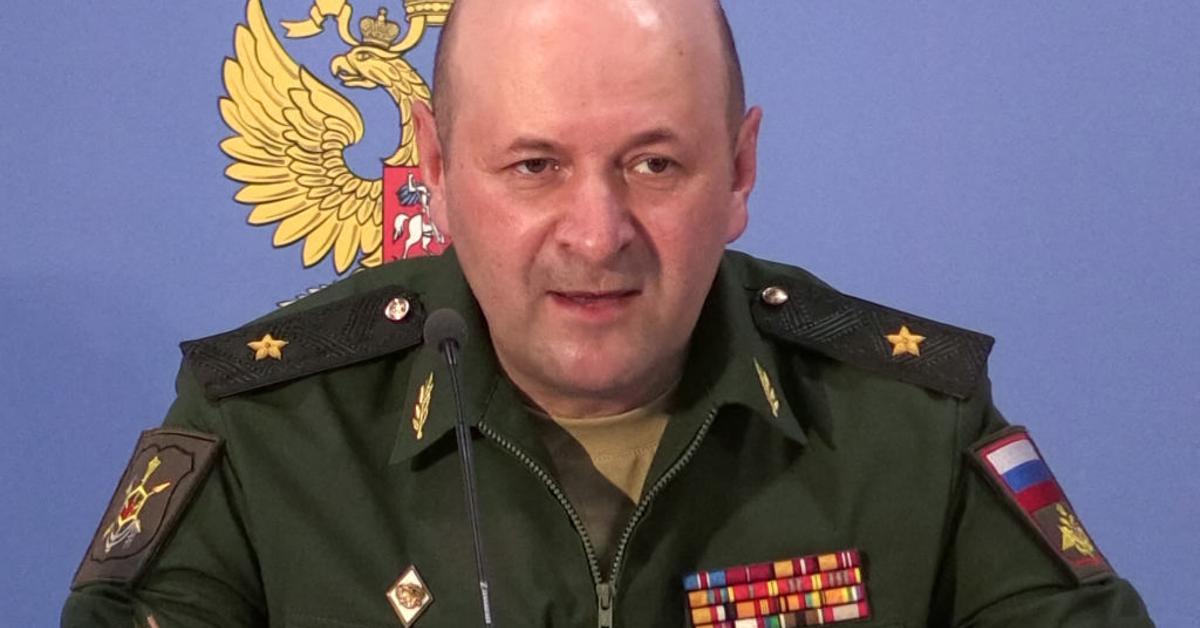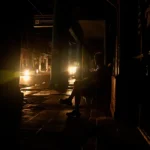
The head of the chemical weapons division of the Russian army has died after an explosive device attached to a scooter exploded in front of an apartment building in Moscow. It is the highest profile murder since the beginning of the invasion of Ukraine.
Igor Kirilov, head of the military’s chemical, biological and radiological weapons unit, was killed along with his deputy when the explosion went off as they were leaving a building in a residential area southeast of Moscow early Tuesday.
Kirilov, sanctioned by Britain in October for alleged use of chemical weapons in Ukraine, is the highest-ranking Russian military officer to die in a targeted assassination far from the front lines since the start of the Kremlin’s offensive in Ukraine almost three years ago.
Moscow has not yet identified who was responsible for the attack, but blame is likely to be placed on the Ukrainian leadership. Reuters and Agence France-Presse, citing a Ukrainian security source, have reported that kyiv is behind the attack.
The Ukrainian security service SBU had issued an arrest warrant against Kirilov a day earlier for alleged war crimes against kyiv forces.
Ukraine has targeted dozens of Russian military officers and Russian-based officials whom kyiv has accused of committing war crimes in the country. Little is known about the clandestine cells of the Ukrainian resistance involved in assassinations and attacks against military infrastructure in areas controlled by Russia.
The Russian investigative commission has declared that Kirilov was murdered after “an explosive device placed on a scooter parked near the entrance to a residential building was activated on the morning of December 17 on Ryazansky Avenue in Moscow.”
Mash, a Telegram channel linked to Russian security forces, posted a photo of two bodies lying in the snow in front of an apartment building, surrounded by shards of glass from broken windows.
Kirilov, who had held his position since 2017, supervised the radiological, chemical and biological defense unit of the Russian army. Russian radiological, chemical and biological defense troops, known as RKhBZ, are special forces that operate in contaminated conditions.
In October, the British government imposed sanctions on Kirilov and his unit “for helping to deploy these barbaric weapons,” charges that Moscow has denied. Britain and the United States have accused Russia of using the toxic agent chloropicrin against Ukrainian troops in violation of the chemical weapons ban convention.
In June, Ukraine accused Russia of increasing frontline attacks with banned dangerous chemicals and claimed to have recorded more than 700 cases of their use in the previous month.
The United Kingdom had previously claimed that Kirilov was “a leading spokesman for Kremlin disinformation, spreading lies to mask Russia’s disgraceful and dangerous behavior,” referring to public briefings in which he regularly accused kyiv of masterminding the use of chemical weapons and developing a nuclear “dirty bomb.”
Last year, Kirilov claimed, without providing evidence, that Ukraine planned to use special U.S.-designed drones that carried “infected mosquitoes” that would spread malaria among Russian forces.
Kirilov was also part of Moscow’s efforts to discredit the British investigation into the poisoning of Sergei Skripal in Salisbury, once claiming that the United States orchestrated the attack on the former Russian spy who had defected to the West.
Russian Foreign Ministry spokesperson Maria Zakharova wrote on Telegram that Kirilov had spent “many years exposing the crimes of the Anglo-Saxons” in his reports, including “the British manipulation of banned chemicals and the provocations in Salisbury.”
“He worked without fear, never hiding behind others, always facing challenges head-on. For the country, for the truth,” he added.
According to his biography published by RIA Novosti, Kirilov helped develop a thermobaric rocket launcher, the TOS-2. The Russian military has frequently used this weapon in Ukraine.
Kirilov’s murder is the latest in a series of selective attacks against Russian military personnel and pro-Kremlin personalities. The importance of his rank and influence means that this murder could shock the Russian political and military elites.
“The assassination of a lieutenant general will be a shock to many in the Defense Ministry,” said a former senior Russian defense official, speaking on condition of anonymity. “He has had a lot of media attention lately, frequently holding briefings on the Ukrainian armed forces and the use of chemical weapons.”
The former official said other senior defense figures were likely to receive enhanced security measures, which could include round-the-clock protection by members of the Russian special forces. “This will cause quite a stir,” the former source said.
Last week, Ukrainian intelligence said it had killed a top Russian missile scientist who had been working on improving cruise missiles used on the battlefield in Ukraine. Mikhail Shatsky’s body was discovered in the Kuzminsky Forest Park, 13 kilometers southeast of central Moscow, although Russia has yet to comment on the alleged murder.
Earlier this year, Ukraine said it was behind the murder of a senior Russian naval officer in a car in Crimea, as well as that of a senior GRU military intelligence official outside his home in a village in the region. Moscow.
Aside from military figures, Ukraine has attacked prominent Russian pro-war propagandists, such as Darya Dugina, daughter of a Russian ultranationalist ideologue, who died in 2023 when a bomb blew up the Toyota Land Cruiser she was driving.
On Monday, Vladimir Putin met with senior defense officials in Moscow, where he boasted that the war in Ukraine had reached a “turning point.”
Translation of Javier Biosca
Source: www.eldiario.es

